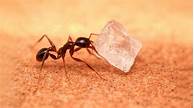Can You Have a Sea Otter as a Pet?
Sea otters are adorable, playful creatures that have captured the hearts of many people. With their luxurious fur, expressive eyes, and playful antics, it's no wonder why some may consider keeping one as a pet. However, before you rush into adopting a sea otter, it's crucial to understand the complexities and challenges associated with keeping these wild animals in captivity.

The Legality of Owning a Sea Otter
In most countries, it is illegal to own a sea otter as a pet. Sea otters are protected under various laws and regulations due to their declining populations in the wild. In the United States, for example, the Marine Mammal Protection Act prohibits the capture, possession, and harassment of sea otters without a permit. The only entities allowed to possess sea otters are scientific institutions, rehabilitation centers, and zoos that meet specific criteria.
The Complex Needs of a Sea Otter
Even if you were legally allowed to own a sea otter, providing them with the proper care and environment is extremely challenging. Sea otters are highly social animals that live in large groups in their natural habitat. They require a vast amount of space to swim, forage, and socialize, which is impossible to replicate in a typical home setting.
Dietary Requirements
Sea otters have a specialized diet consisting primarily of marine invertebrates such as sea urchins, clams, mussels, and abalone. Providing a captive sea otter with a balanced and nutritious diet is incredibly difficult and expensive. Additionally, sea otters have a high metabolism and require frequent feedings throughout the day.
Medical Care and Veterinary Expertise
Sea otters are prone to various health issues, including respiratory infections, skin conditions, and eye problems. They require specialized medical care and access to experienced veterinarians who are familiar with their unique needs. Finding such expertise is challenging, and the costs associated with veterinary care can be substantial.
Behavioral Challenges
Sea otters are known for their playful and curious nature, but they can also exhibit unpredictable and aggressive behaviors. They may become destructive, bite, or scratch if they feel threatened or stressed. Additionally, sea otters can develop separation anxiety when separated from their social group, leading to self-destructive behaviors.
Conclusion
While sea otters may appear irresistible, the reality of keeping one as a pet is far from ideal. The legal, ethical, and practical challenges associated with owning a sea otter are immense. These animals belong in their natural environment, where they can thrive and fulfill their complex social and ecological roles. By appreciating sea otters from a distance, we can help protect and conserve these amazing creatures and ensure their well-being in the wild.
Declaration: All article resources on this website, unless otherwise specified or labeled, are collected from online resources. If the content on this website infringes on the legitimate rights and interests of the original author, you can contact this website to delete it.





